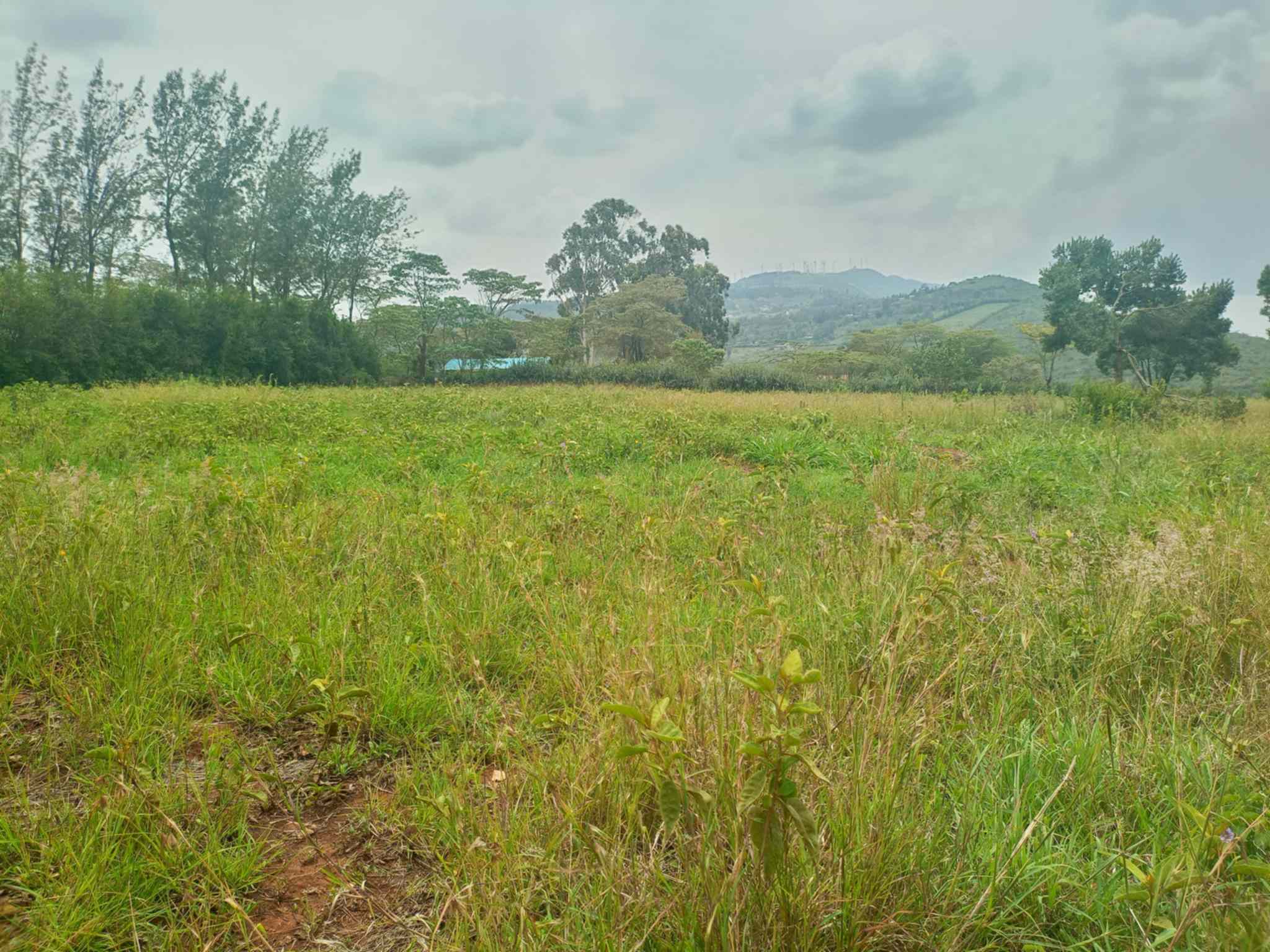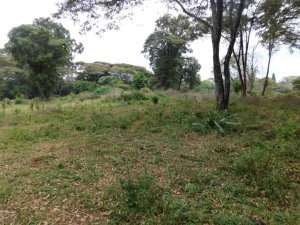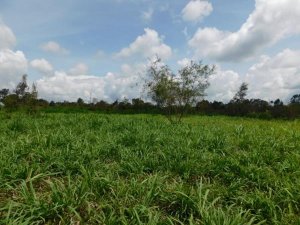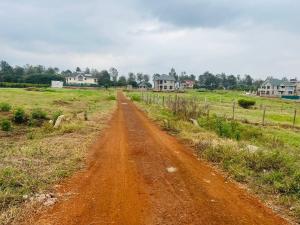Industrial Land for Sale in Nairobi: Unlocking Investment Opportunities in a Thriving Business Hub


Industrial Land for Sale in Nairobi
Introduction
Are you considering investing in industrial land in Nairobi? This comprehensive guide will provide you with valuable insights into the industrial land for sale in Nairobi, including its significance, the industrial landscape in the city, location considerations, zoning regulations, infrastructure, utilities, types of industrial land, factors to consider when purchasing, investment potential, and sustainability aspects.
Overview of Nairobi’s Industrial Landscape
Nairobi is a prominent industrial hub in East Africa, attracting various industries and investment opportunities. The industrial land for sale in Nairobi plays a crucial role in supporting economic growth and industrial development. Key industries such as manufacturing, logistics, and technology drive the demand for industrial land in the city.
Location Considerations for Industrial Land for Sale in Nairobi
When considering industrial land in Nairobi, strategic location is paramount. Different industrial zones offer advantages depending on the nature of your business. Access to transportation networks, logistics hubs, and proximity to suppliers, customers, and target markets are crucial factors to consider when choosing the location for your industrial land.
Understanding Industrial Zoning and Regulations
Industrial zoning and regulations are critical aspects to consider when exploring opportunities for industrial land for sale in Nairobi. These regulations serve to guide and govern the development and use of industrial properties within the city. Understanding industrial zoning and complying with applicable regulations are essential steps for investors and developers looking to make strategic investments in industrial land for sale in Nairobi.
Purpose of Industrial Zoning
Industrial zoning plays a crucial role in urban planning by designating specific areas within Nairobi for industrial activities. The primary purpose of industrial zoning is to create a clear separation between industrial zones and other land uses, such as residential or commercial areas. This separation minimizes potential conflicts and promotes orderly and efficient development. By designating specific areas for industrial land use, the city can ensure that industrial activities can thrive while minimizing any adverse effects on nearby residential or commercial properties.
Zoning Classifications for Industrial Land
Industrial land for sale in Nairobi is typically classified into different zoning categories based on the intensity and type of industrial activities allowed in each area. These zoning classifications include heavy industrial, light industrial, or mixed-use industrial zones. Each zone has its own set of regulations and restrictions that govern the types of activities and structures permitted. Potential investors interested in industrial land for sale in Nairobi must familiarize themselves with the specific zoning classifications and understand the permitted land uses and development standards associated with each zone.
Throughout the city, various industrial land for sale in Nairobi can be found, each offering unique opportunities for different types of industries. Whether it is heavy industrial zones suitable for manufacturing plants, light industrial zones catering to smaller-scale production or assembly, or mixed-use industrial zones accommodating a combination of industrial and commercial activities, there are options to suit diverse investment needs.
Complying with Regulations
Compliance with industrial zoning regulations is paramount when considering the purchase of industrial land for sale in Nairobi. To ensure a smooth and successful development process, it is crucial to obtain the necessary permits and approvals from the relevant authorities before commencing any construction or land use activities. These permits may include zoning permits, building permits, environmental clearances, and fire safety certifications.
Engaging with local planning departments and consulting professionals experienced in navigating industrial zoning regulations can greatly assist in ensuring compliance and streamlining the approval process. By diligently adhering to the regulations and obtaining the required permits, investors can mitigate potential setbacks and proceed with their industrial development plans in Nairobi.
Environmental Considerations
Industrial zoning and regulations in Nairobi also encompass important environmental considerations to promote sustainable development practices. The city places emphasis on minimizing the environmental impact of industrial activities and preserving the well-being of surrounding communities. Environmental regulations may address issues such as waste management, pollution control, energy efficiency, and the conservation of natural resources.
Investors and developers must carefully adhere to these regulations to mitigate environmental risks and ensure the long-term sustainability of their industrial projects. By incorporating sustainable practices and technologies into their development plans, such as utilizing green building materials or implementing energy-efficient systems, investors can contribute to both the success of their industrial ventures and the overall environmental well-being of Nairobi.
Benefits of Industrial Zoning
Industrial zoning brings forth several benefits for investors and the community at large. By designating specific areas for industrial activities, industrial zoning ensures that industries can operate without encroaching upon residential areas. This separation helps to minimize potential conflicts and complaints related to noise, traffic, or other industrial activities. As a result, nearby residents can enjoy a higher quality of life, undisturbed by industrial operations.
Industrial zoning also promotes efficient land use and infrastructure planning within Nairobi. By concentrating industrial activities in designated areas, the city can plan and allocate resources more effectively, such as developing appropriate road networks or utility infrastructure to support industrial growth. Moreover, industrial zoning encourages economic growth by attracting investment and creating employment opportunities within the industrial sector.
Infrastructure and Utilities for Industrial Land
Industrial land for sale in Nairobi presents a unique opportunity for businesses to establish a foothold in a vibrant and growing industrial sector. To ensure the smooth operation and success of industrial ventures, it is crucial to consider the infrastructure and utilities available in the area, including the availability of reliable infrastructure and utilities to support industrial operations.
1. Strategic Location and Connectivity
The strategic location of industrial land for sale in Nairobi is key to attracting businesses and ensuring efficient operations. Being centrally positioned within the country, Nairobi offers excellent connectivity to major highways, railways, and airports, making it an ideal location for businesses looking to establish industrial operations. This advantageous location enables easy transportation of goods and raw materials, ensuring smooth supply chains and distribution networks for industrial businesses in Nairobi.
2. Well-Developed Road Networks
Industrial land for sale in Nairobi benefits from well-developed road networks that facilitate the seamless movement of goods and services. The road infrastructure includes major arterial roads, highways, and bypasses that connect different parts of the city and provide access to national and regional transport networks. These well-connected roads make industrial land in Nairobi easily accessible, reducing transportation costs and enabling efficient logistics management for businesses operating in the industrial sector.
3. Reliable Water Supply
A consistent and reliable water supply is crucial for industrial operations. Industrial land for sale in Nairobi often benefits from a well-established water infrastructure that ensures an uninterrupted water supply to businesses. Nairobi Water and Sewerage Company, responsible for water supply in the city, ensures that industrial businesses have access to a reliable water source. This reliable water supply is essential for manufacturing processes, cooling systems, and other industrial activities carried out on the industrial land in Nairobi.
4. Continuous Power Supply
An uninterrupted power supply is vital for industrial operations, and Nairobi offers a reliable and stable electricity grid. The Kenya Power and Lighting Company (KPLC) ensures a consistent power supply to industrial areas, including those with industrial land for sale in Nairobi. This reliable power supply is critical for running machinery, equipment, and other power-dependent operations in industrial settings. Businesses can rely on a stable electricity supply to carry out their industrial activities efficiently.
5. Telecommunications and Internet Connectivity
In the digital age, robust telecommunications and internet connectivity are essential for industrial businesses. Nairobi, being the technological hub of East Africa, provides reliable and high-speed internet connectivity. Telecommunication providers offer a range of services, including fiber-optic connections and dedicated business solutions, to support the communication and data needs of industrial operations. This advanced telecommunications infrastructure enables efficient communication with suppliers, customers, and stakeholders, as well as facilitates the integration of automation and digital technologies in industrial processes. Businesses operating on industrial land in Nairobi can take advantage of this advanced telecommunications infrastructure to enhance their operational efficiency.

Types of Industrial Land and Facilities
When exploring industrial land for sale in Nairobi, it’s crucial to understand the different types of industrial land available and the facilities they offer. Each type caters to specific industries and activities, providing the necessary infrastructure and amenities for optimal operations. Let’s delve deeper into the various types of industrial land and the facilities available:
- Heavy Industrial Land: Industrial land for sale in Nairobi classified as heavy industrial is ideal for manufacturing and heavy-duty industrial activities. With a focus on industries such as automotive, machinery, steel, and construction, these plots of land offer larger areas and can accommodate substantial industrial structures and machinery. The availability of utilities like high-power electricity and robust infrastructure make heavy industrial land suitable for large-scale manufacturing operations.
- Light Industrial Land: Light industrial land, also available for sale in Nairobi, is designed for industries that involve light manufacturing, assembly, and processing activities. It caters to sectors such as electronics, textiles, food processing, and packaging. Light industrial facilities require smaller spaces, making these plots of land more suitable. Industrial land for sale in Nairobi often provides well-designed factory spaces, warehouses, and storage facilities for light industrial activities.
- Mixed-Use Industrial Land: Mixed-use industrial land combines industrial and commercial elements. This type of land is versatile and caters to a range of activities, including manufacturing, warehousing, and office spaces. Industrial land for sale in Nairobi classified as mixed-use provides the flexibility for businesses to combine production, distribution, and administrative functions within a single location. This integrated approach fosters efficiency and collaboration among different departments.
- Industrial Parks: Industrial parks, a sought-after option for industrial land for sale in Nairobi, are purpose-built spaces that offer a comprehensive range of facilities and services. These parks are carefully planned and managed, providing a supportive environment for businesses. Industrial parks often feature amenities such as 24/7 security, well-maintained common areas, ample parking spaces, and shared utilities. They are designed to foster collaboration and synergy among businesses within the park, offering a convenient and conducive setting for industrial activities in Nairobi.
- Specialized Facilities: In addition to the various types of industrial land, specialized facilities are available for specific industries. These facilities may include research and development centers, laboratories, clean rooms, and specialized manufacturing zones. They cater to industries such as technology, pharmaceuticals, and advanced manufacturing. Specialized facilities provide the necessary infrastructure and resources for industries with unique requirements, ensuring optimal operations and innovation.
Factors to Consider When Purchasing Industrial Land
When purchasing industrial land for sale in Nairobi, there are several crucial factors to consider. These considerations will help you make an informed decision and ensure the suitability of the land for your specific industrial needs. Below are key factors to take into account during the purchasing process:
- Location and Accessibility: The location of the industrial land for sale in Nairobi is vital for the success of your operations. Consider its proximity to transportation networks, major highways, and logistical hubs. Easy accessibility will facilitate the movement of goods and raw materials, reducing transportation costs and improving overall efficiency.
- Zoning and Land Use: Verify that the industrial land is properly zoned for your intended industrial activities. Familiarize yourself with the zoning regulations and restrictions imposed by the local authorities. Ensure that the land is legally designated for industrial purposes and complies with all relevant land use regulations.
- Infrastructure and Utilities: Assess the availability and reliability of essential infrastructure and utilities for the industrial land for sale in Nairobi. Adequate water supply, electricity, sewage systems, and telecommunications connectivity are crucial for smooth industrial operations. Consider the existing infrastructure on or near the land and evaluate the cost and feasibility of connecting to necessary utilities.
- Land Size and Topography: Evaluate the size of the industrial land in Nairobi and determine if it meets your operational requirements. Consider the topography of the land, including its slope and drainage patterns. Flat and well-drained land is generally more suitable for industrial development in Nairobi, as it facilitates construction and minimizes potential environmental challenges.
- Environmental Factors: Conduct thorough environmental assessments specific to the industrial land for sale in Nairobi to identify any potential environmental risks or constraints. Evaluate factors such as soil quality, potential contamination, and proximity to environmentally sensitive areas. Ensure compliance with environmental regulations and assess the feasibility of implementing sustainable practices.
- Future Growth Potential: Consider the future growth potential of the area surrounding the industrial land for sale in Nairobi. Assess any planned infrastructure developments, such as road expansions or nearby industrial projects, which could positively or negatively impact your operations and property value.
- Security and Safety: Evaluate the security measures in place in the vicinity of the industrial land for sale in Nairobi. Consider the crime rate of the area and assess the need for additional security measures to protect your assets and employees. Additionally, consider safety factors such as proximity to hazardous facilities or potential risks related to neighboring properties.
- Cost and Financing: Assess the cost of the industrial land for sale in Nairobi, taking into account factors such as size, location, infrastructure, and market demand. Evaluate your financing options and determine the feasibility of acquiring the land within your budget. Consider working with a financial advisor or real estate professional to explore financing options tailored to industrial land purchases.
Investment Potential and Returns on Industrial Land
Investing in industrial land for sale in Nairobi offers significant potential for long-term financial growth and attractive returns on investment. The city’s booming industrial sector, strategic location, and robust infrastructure create a favorable environment for industrial development. Let’s explore the investment potential and returns that can be expected from industrial land for sale in Nairobi.
- Rising Demand and Limited Supply: Nairobi’s industrial sector continues to experience increasing demand for land, driven by factors such as population growth, urbanization, and expanding industries. However, the supply of industrial land for sale in Nairobi is limited, creating a supply-demand imbalance. This scarcity factor contributes to the appreciation of industrial land prices over time, increasing the potential for capital gains.
- Strategic Location: Nairobi’s central location within East Africa positions it as a regional hub for trade and commerce. Its proximity to major transportation routes, including ports and airports, provides convenient access to local and international markets. These Industrial land are located in strategic areas enjoys higher demand and attracts businesses seeking efficient logistical operations and supply chain management.
- Supportive Infrastructure: Nairobi boasts well-developed infrastructure, including reliable road networks, access to utilities, and advanced telecommunications systems. This infrastructure facilitates the smooth operation of industries and enhances the value of industrial land for sale in Nairobi. Businesses can establish operations quickly and efficiently, leading to increased productivity and profitability.
- Diverse Industrial Sectors: Nairobi’s industrial landscape encompasses various sectors, including manufacturing, logistics, technology, and services. This diversification mitigates the risks associated with dependence on a single industry. Investors can select industrial land for sale in Nairobi that aligns with their investment goals and tap into the thriving sectors that demonstrate growth potential.
- Rental Income and Lease Opportunities: Industrial land for sale in Nairobi presents opportunities for generating rental income through leasing or land sub-division. Businesses looking to establish their operations can lease industrial land in Nairobi, providing a steady stream of rental income for landowners. The high demand for industrial space in Nairobi ensures a continuous flow of potential tenants and long-term lease agreements.
- Potential for Value Appreciation: Industrial land for sale in Nairobi has shown a consistent trend of value appreciation over time. As the city’s industrial sector continues to grow, fueled by economic development and foreign investment, the value of industrial land in Nairobi is expected to rise. This appreciation offers investors the potential for significant capital gains when selling or developing the land in the future.
- Positive Economic Outlook: Nairobi’s economic growth projections are optimistic, with continued investments in infrastructure and a favorable business climate. The city’s status as a regional economic powerhouse attracts both local and international investors, further stimulating the demand for industrial land for sale in Nairobi. This positive economic outlook contributes to the overall investment potential of industrial land in Nairobi.

Environmental and Sustainability Considerations
When investing in industrial land for sale in Nairobi, it is crucial to incorporate environmentally friendly measures and ensure long-term sustainability. Here are key aspects to consider:
- Green Technologies and Energy Efficiency: Integrating green technologies available in Nairobi industrial land not only lessens environmental impact but also fosters energy efficiency. This encompasses the adoption of renewable energy sources, implementation of energy-efficient lighting systems, and utilization of eco-friendly machinery. By embracing sustainable energy practices, industries can effectively reduce their carbon footprint and decrease dependence on non-renewable energy sources.
- Waste Management and Recycling: Establishing effective waste management systems is crucial for industrial land available in Nairobi. It is imperative to prioritize waste reduction, recycling, and proper disposal practices. By implementing recycling programs and adopting efficient waste management techniques like composting and waste-to-energy initiatives, we can actively contribute to the development of a circular economy and mitigate environmental pollution.
- Water Conservation: Water scarcity is a pressing issue worldwide. It is imperative for industries to reduce water consumption and actively support conservation efforts, especially in areas like Nairobi that offer industrial land for sale.. Implement water-saving technologies, rainwater harvesting systems, and water recycling to reduce consumption and preserve this precious resource. Invest in efficient irrigation systems and water-efficient processes to minimize wastage.
- Environmental Impact Assessments: Before initiating industrial land development in Nairobi, conduct thorough environmental impact assessments. Evaluate potential environmental effects and propose mitigation measures to minimize negative impacts. Ensure that industrial activities do not harm ecosystems, wildlife habitats, or air and water quality in Nairobi.
- Compliance with Environmental Regulations: Adhere to local and national environmental regulations for sustainable industrial land development in Nairobi. Be aware of environmental laws, permits, and certifications required for operations. Compliance ensures responsible waste disposal, pollution control, and protection of natural resources.
- Green Building Practices: When developing industrial facilities on available industrial land in Nairobi, it is imperative to embrace and integrate green building practices. This approach ensures not only the construction of sustainable structures but also minimizes environmental impact while maintaining the intended purpose of the facilities. Use eco-friendly construction materials, energy-efficient designs, and optimize natural lighting and ventilation systems. Green buildings contribute to resource efficiency, occupant comfort, and reduced greenhouse gas emissions.
Frequently Asked Questions about the sale of industrial land in Nairobi:
What are the main industrial areas in Nairobi?
The main industrial areas in Nairobi are Industrial Area, Baba Dogo, Ruaraka, Embakasi, and Mombasa Road. These areas have many factories, warehouses, and workshops.
What types of industrial land are available?
The common types of industrial land available in Nairobi are light industrial zones for small enterprises, medium industrial zones for medium factories and warehouses, and heavy industrial zones for large manufacturing plants. Plots come in different sizes from 0.5 acres up to 5+ acres.
What is the process for purchasing industrial land in Nairobi?
- Identify a suitable plot of land in the desired industrial area
- Confirm the land is zoned for industrial use with the Nairobi County government
- Engage a lawyer to do due diligence on the land ownership and transfer process
- Put down a deposit to secure the purchase
- Complete the sale agreements and transfer of title deeds with the lawyer
- Obtain approvals and permits from Nairobi County and NEMA for construction
What are the costs involved in buying industrial land? Major costs are the purchase price for the land, legal and transfer fees, survey fees, and stamp duty which is 4% of the purchase price. The land price varies greatly based on location, size, infrastructure, demand, and other factors. Prices range from KES 10 million per acre to over KES 100 million in prime locations.
What infrastructure is available in the industrial areas? Basic infrastructure like roads, power, and water are available but quality and capacity vary across locations. The buyer may need to budget for additional infrastructure like upgrading the road, installing a transformer for adequate electricity, sinking a borehole, etc.
Are there any government incentives or tax benefits for purchasing industrial land in Nairobi?
The government offers some incentives like investment deductions on buildings and machinery, and export processing zone incentives for certain manufacturing industries. Discuss with your lawyer on any tax benefits you may be eligible for.
How can I determine if the land title is genuine and the seller actually owns it?
Insist on seeing the original title deed and have your lawyer do a comprehensive title search at the lands office to verify ownership history and confirm there are no encumbrances or liens on the land.
What approvals do I need before starting construction on industrial land?
You’ll need approved building plans from Nairobi County, change of user permits if converting from agricultural to industrial land, NEMA approvals, and approvals for utility connections like water, sewer and electricity.
Is it difficult to find tenants to lease industrial facilities in Nairobi?
Demand is quite high for ready industrial units, warehouses and workshops in Nairobi. If you construct good quality facilities, it should not be difficult to find tenants quickly.
How soon can I expect to start generating returns on investment in industrial land?
Depends on how quickly you can develop the land, but roughly 2-3 years from purchase to having fully tenanted facilities generating rental income.
Are there any land size restrictions for industrial plots in Nairobi?
Yes, minimum size for industrial plots across Nairobi is generally 0.5 acres. Some areas may have larger minimum sizes. Discuss with your lawyer.
How is demand for industrial land in Nairobi currently?
Demand is quite robust given rapid economic and industrial growth. Prime industrial land is scarce, so well-located plots sell fast. Be ready to make a quick purchase decision.
Conclusion
Industrial land for sale in Nairobi presents lucrative investment opportunities in a thriving industrial landscape. By understanding the significance of industrial land, location considerations, zoning regulations, infrastructure, utilities, and sustainability aspects, investors can make informed decisions. Embrace the potential for industrial growth and development in Nairobi and unlock the opportunities offered by industrial land for a successful investment venture.
What distinguishes industrial land from other types of land in Nairobi?
Industrial land is designated primarily for manufacturing, warehousing, and other industrial activities. Unlike residential or commercial lands, they have specific regulations and facilities tailored for industrial operations.
Are there any restrictions on the type of industries that can be set up on the industrial land in Nairobi?
Yes, there may be specific restrictions based on environmental concerns, the nature of the industry, and local regulations. It’s essential to consult with Nairobi City County officials to understand any specific limitations.
How does the price of industrial land in Nairobi compare to other regions?
Prices can vary depending on the location, accessibility, and amenities provided. Generally, Nairobi, being the capital city, may have higher land prices compared to more remote areas, but prices might be competitive given the infrastructure and market access it offers.
Is there a provision to lease the industrial land rather than buying it outright?
Yes, there are options for long-term leases available. The terms and conditions of these leases will vary based on the landowner and the intended use of the land.
Are there any tax incentives or benefits for setting up industries on these lands in Nairobi?
The Kenyan government occasionally offers tax breaks or incentives to promote specific industries or regions. It’s advisable to check with the Kenya Revenue Authority (KRA) and Nairobi City County for any current incentives.
Is the infrastructure, like roads and electricity, well-developed in the industrial zones of Nairobi?
Most industrial zones in Nairobi have well-developed infrastructure, including tarmac roads, electricity, and water supply. However, infrastructure can vary from one zone to another, so on-site inspections are recommended.
Can the industrial land be repurposed or rezoned for other uses?
Rezoning requires approval from the Nairobi City County planning department. While it’s possible, the process can be lengthy and is not guaranteed. It’s essential to ascertain the intended use before purchasing.
What security measures are typical in Nairobi’s industrial zones?
Many industrial zones in Nairobi have enhanced security provisions, including perimeter fencing, security patrols, and CCTV surveillance. It’s advisable to assess the security of the specific area you are interested in.
How can I verify the authenticity of industrial land listings in Nairobi?
Always engage with a reputable real estate agency or legal professional to conduct due diligence. They can help verify land ownership, ensure there are no disputes, and guide you through the purchase process.



